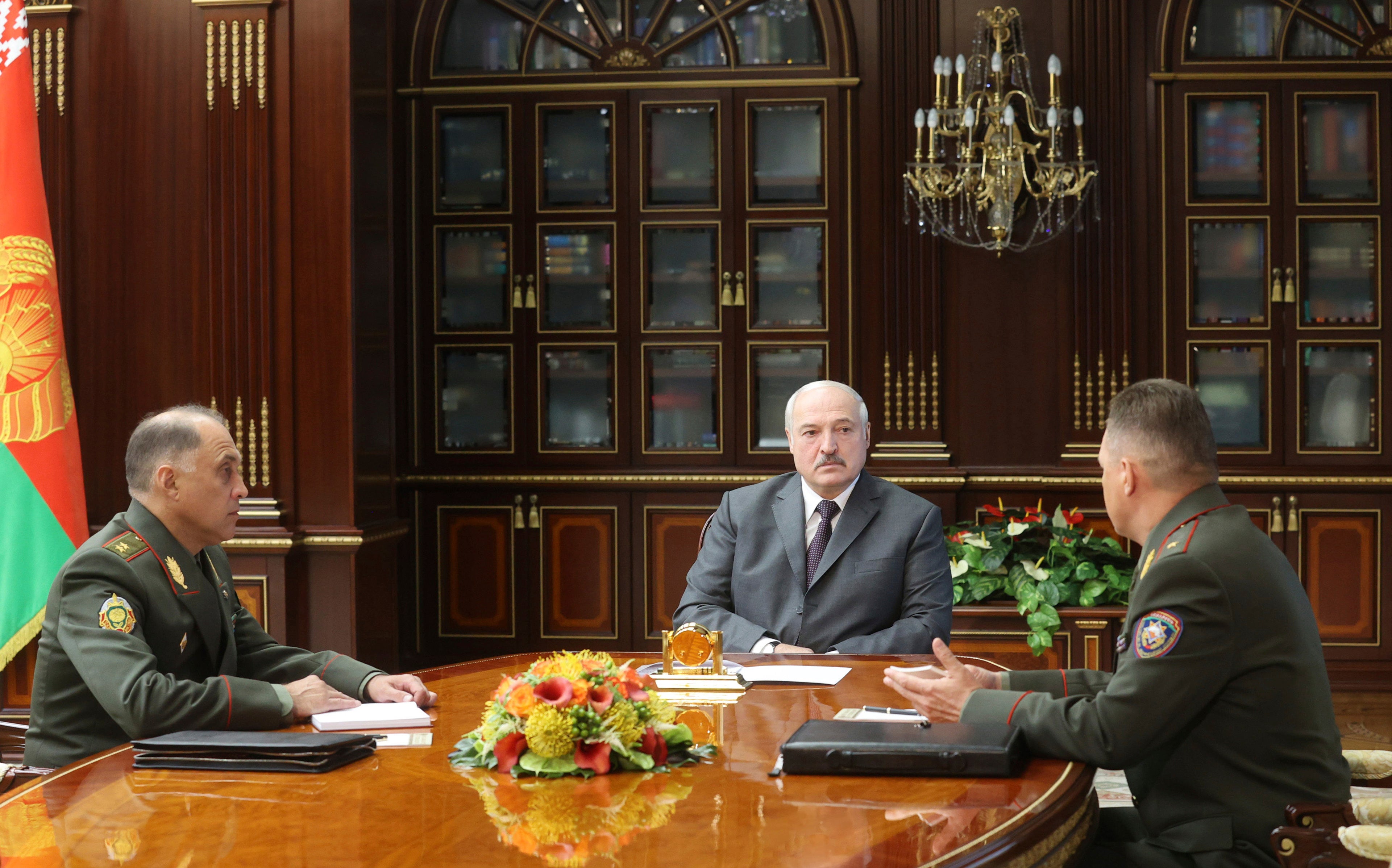Polish asylum offer for Belarusian sprinter highlights hostility to Lukashenko’s regime
Warsaw has become a strong supporter of Lukashenko’s opposition, fearing that past leniency has only facilitated his regime’s growing brutality, writes William Nattrass

Poland is offering asylum to Belarusian sprinter Krystsina Tsimanouskaya after the athlete claimed team officials tried to force her to return to Belarus.
Images and video circulated on social media appeared to show Tsimanouskaya refusing to board a plane at Tokyo’s Haneda Airport on Sunday after criticising national coaches for the Belarus team’s preparations for games.
Later, the sprinter presented herself at the embassy of Poland in Tokyo, where she has been granted a humanitarian visa, according to Poland’s Deputy Foreign Minister Marcin Przydacz. Both Poland and the Czech Republic offered her asylum in response to treatment which the Czech Foreign Minister Jakub Kulhanek described as “scandalous.”
I didn’t think it would get this serious. I made the decision to leave without thinking twice
A representative of the Belarusian Sports Solidarity Foundation said that the visa obtained by Tsimanouskaya at the Polish embassy should allow her to subsequently request political asylum in the country.
While Tsimanouskaya sought Polish protection, it emerged that her husband, Arseniy Zdanevich, had simultaneously fled to Ukraine from Belarus. Zdanevich told reporters in Kiev that: “I didn’t think it would get this serious. I made the decision to leave without thinking twice.”
Meanwhile, a disturbing audio recording emerged in which two senior members of the Belarus delegation appear to threaten Tsimanouskaya with punishment if she refuses to return to Belarus.
“Let this situation go,” they say. “The more that you struggle, it will be like a fly caught in a spider’s web: the more it spins, the more it gets entangled.”
Tsimanouskaya’s criticism of the Belarus team’s preparation was the latest humiliation at the games for the regime of President Alexander Lukashenko.
The International Olympic Committee had earlier refused to recognise the election of Lukashenko’s son as president of the country’s National Olympic Committee while freezing payments to that committee following allegations of political discrimination and imprisonment made by athletes.
Lukashenko, his son, and a host of other Belarusian officials have been barred from attending the games in Tokyo as a result of the allegations.
Now, offers of asylum for Tsimanouskaya from Poland and the Czech Republic have highlighted regional opposition to Lukashenko’s regime following his controversial re-election as president in August 2020.

The elections were widely condemned as fraudulent, with key potential challenger Viktor Babaryko arrested ahead of the vote on charges of money laundering and bribery, and the husband of opposition leader Svetlana Tikhanovskaya put on trial for inciting disorder.
Babaryko has since been sentenced to fourteen years in jail, and Tikhanovskaya’s husband could face a similar term if found guilty in proceedings that are closed to the public.
Belarus’s western neighbour Poland has been particularly critical of Lukashenko’s government and pushed the EU to take action following the disputed 2020 election.
Polish Prime Minister Mateusz Morawiecki said the huge protests following the vote showed that Belarusians “want to belong to a Europe of free, democratic nations under the rule of law”.
Now, Poland’s support for Tsimanouskaya again shows the country taking a leading role in criticising the Lukashenko regime.
Poland has consistently supported the transformation of Eastern European countries aimed at democratisation and integration with the West
“Poland has consistently supported the transformation of Eastern European countries aimed at democratisation and integration with the West through the EU and Nato,” Andrzej Turkowski from the Polish Robert Zajonc Institute for Social Studies told the Independent.
“It is well known that Lukashenko does not support either of these ambitions, and the Polish offer to host Tsimanouskaya is another, powerful step towards clear Polish support for the anti-Lukashenko movement,” he added.
Over a decade ago, Poland played a leading role in sketching out the terms of the EU’s Eastern Partnership programme intended to bring the EU’s eastern neighbours - including Belarus - further into line with EU principles and regulations.
Yet when the EU imposed sanctions on Minsk this year following the abduction of Protasevich, Lukashenko pulled Belarus out of the programme, in a clear signal that he no longer has any ambitions to build bridges with the West.
Indeed, many in Poland now fear that past leniency towards Lukashenko has only facilitated the growing brutality of his regime.
“There was, for some time, a debate in Poland as to whether it would be in Polish interests to weaken Lukashenko’s position, with some arguing that he could have been replaced by someone more closely aligned with Moscow,” says Turkowski.
“Following the reaction of the regime to recent protests, though, the thinking has changed. Poland now strongly supports Belarusian opposition leaders calling for Lukashenko’s resignation – while Belarusian authorities have even accused the Polish government of being involved in a plot aimed at regime change in Minsk,” he added.
In the context of this breakdown in relations, Poland’s decision to welcome Tsimanouskaya constitutes another rejection of a Belarusian regime in which all criticism is seen as a threat – and where not even athletes are safe from reprisals.
Subscribe to Independent Premium to bookmark this article
Want to bookmark your favourite articles and stories to read or reference later? Start your Independent Premium subscription today.
Join our commenting forum
Join thought-provoking conversations, follow other Independent readers and see their replies
Comments